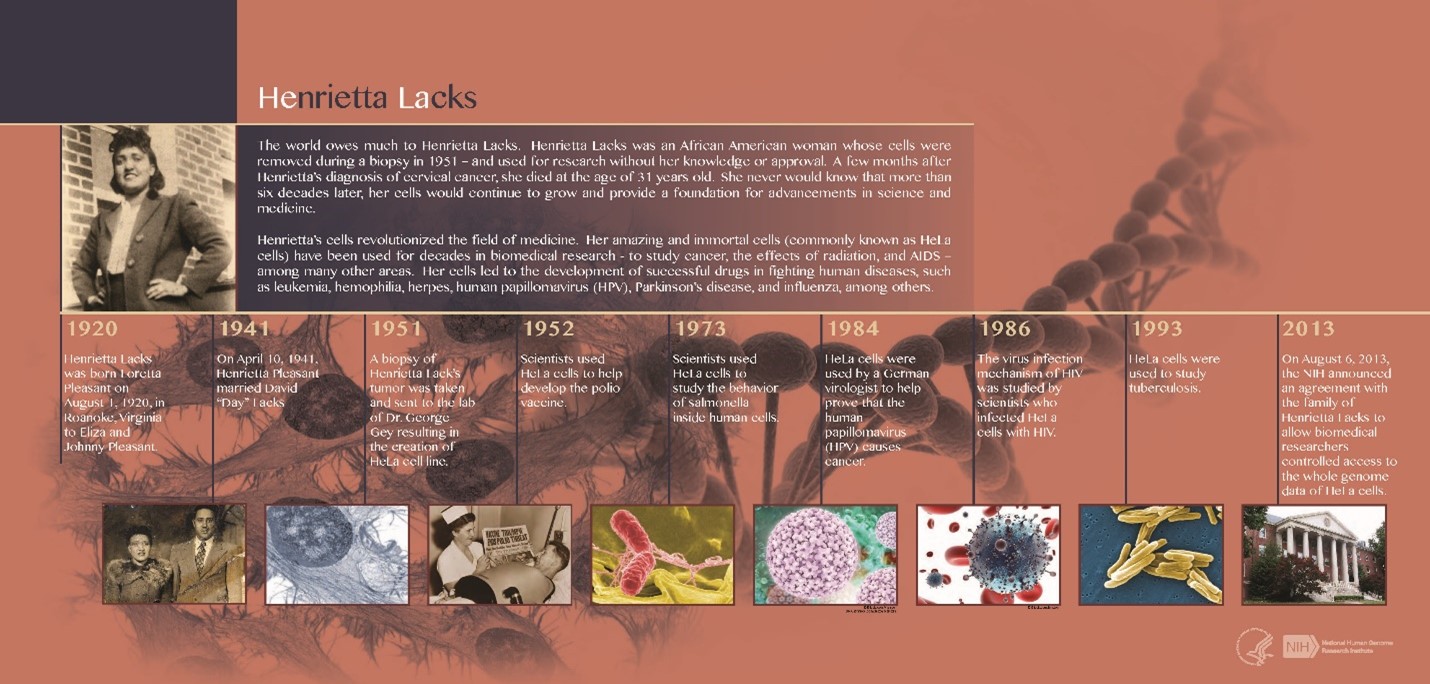172 Henrietta Lacks and HeLa cells
Henrietta Lacks, an African American mother of five children, went to Johns Hopkins hospital facilities for medical diagnosis and care, located in Baltimore, Maryland. She was diagnosed with cervical cancer, received treatment, and died less than a year after her cancer diagnosis. She succumbed to cancer in 1951. During the treatment, cancer cells were removed and used for further biomedical research without her informed consent. Some of her cells were immortal, proved very valuable for research, and were named “HeLa” cells, resembling the first two letters of her first and last name. HeLa cells were used for uncounted research projects in the past and today. Vaccines were developed with the help of the cells from Henrietta Lacks. According to scientific reporting, money was made from the HeLa cells without informing the surviving family members of Henrietta Lacks (Reference “Henrietta Lacks: science must right a historical wrong” https://www.nature.com/articles/d41586-020-02494-z). It was also reported that Henrietta Lacks genome derived from the HeLa cells was published without informing the family members. Finally, the director of the NIH met the family members, and an agreement was reached (Callaway, E. Deal done over HeLa cell line. Nature 500, 132–133 (2013). https://doi.org/10.1038/500132a)
- Is it ethical to take someone’s cells, tissue, organs, or fluids without their informed consent?
- Is it ethical for a scientist to use someone’s cells, tissue, organs, or fluids for another type of research than the type of research that was approved by the patient?
- Is it ethical to use research data years after the patient gave approval to do some additional follow-up research, or is a second approval needed?
- Is it ethical to make monetary gains from someone’s cells, tissue, organs, or fluids without the approval of the donor?

Websites for further review:
https://www.nature.com/articles/d41586-020-02494-z
https://en.wikipedia.org/wiki/Henrietta_Lacks
http://henriettalacksfoundation.org/
https://www.npr.org/2010/02/02/123232331/henrietta-lacks-a-donors-immortal-legacy

